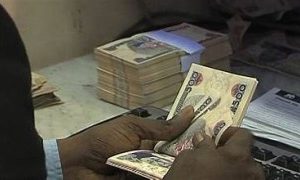

As part of its Conditional Cash Transfer program, the federal government is updating and enlarging the National Social Register to include retirees and former service members.
Additionally, recipients who have crossed the poverty level are being removed.
It was also learned that the Central Bank of Nigeria would pay the recipients directly rather than via consultants, with the first round of bulk payments scheduled to start for five million homes next week.
The Conditional Cash Transfer program is a component of the Federal Government’s National Social Investment Programme, an initiative designed to raise the standard of living and boost the economy for millions of Nigerians living in extreme poverty.
Tuesday in Abuja marked the 2023 International Day for the Eradication of Poverty. As a social safety net initiative, President Bola Tinubu began disbursing N25,000 to 15 million households for a three-month period.
The objective is to lessen the effects of the most recent elimination of gasoline subsidies and contribute to the national eradication of poverty.
The National Communications Manager of the National Social Investment Program Agency, Jamaldeen Kabir, affirmed the minister’s media aide’s assertion that beneficiaries who had crossed the poverty level were being taken off the register.
Regarding the commencement date of the cash transfer, Olanrewaju said that some of the verified recipients had already begun receiving payment alerts, even though bulk payments would start the next week.
According to the humanitarian ministry, the President’s Renewed Hope Agenda, which prioritizes food security, economic growth, job creation, and the eradication of poverty, aligns with the Federal Government’s resolve to achieve this goal.
Represented by Senator George Akume, Secretary to the Government of the Federation, Tinubu listed the measures his administration had taken to reduce poverty in the nation during the cash transfer scheme’s Tuesday debut.
The President listed these as creating the framework and road map for policies aimed at reducing poverty, creating humanitarian responses, and enlarging the National Social Register to cover Nigerians who make less than $1.95 a day.
Additional actions include working with the World Bank Group and other development partners to implement conditional cash transfers and business grants, among other things, and restructuring and realigning the National Social Investment Programme for prompt, transparent, and efficient delivery.
According to the ministry, in order to provide more affordable transportation, the government was also spending N100 billion to buy 3,000 20-seater buses that ran on compressed natural gas.
It went on to say that 500,000 hectares of farmland would be planted for N200 billion in an effort to increase food security.
The transfer of 2,000 metric tonnes of grains to households in the 36 states and the Federal Capital Territory from the strategic grains stockpiles was also mentioned by the ministry. the provision of 225,000 metric tonnes of seedlings and fertilizers to farmers who are dedicated to ensuring the food security of the country.
“The allocation of N75 billion to assist 100,000 startups and small-to medium-sized businesses.” One million families are the focus of the renewed Hope Shelter Program for the impoverished, refugees, and internally displaced people.
“Business grants and loans, among other interventions from various ministries through a multi-sectoral approach, for vulnerable market women, farmers, and traders to expand their business, targeted at two million beneficiaries.”
According to a recent statement made by Betta Edu, the Minister of Humanitarian Affairs and Poverty Alleviation, Nigeria should have the cooperation of all parties involved, including the corporate sector, development partners, and foreign countries, in its efforts to eradicate poverty.
“Giving the poor and vulnerable Nigerians a new breath of hope is the cardinal goal of President Bola Ahmed Tinubu’s administration, which is also in line with the SDG target,” she said.
“President Bola Ahmed Tinubu will not give up until Nigerians who are at risk of poverty are entirely lifted out by 2030.”
According to Edu, conditional cash transfers are a tried-and-true method of reducing poverty since they enable people to create micro and small businesses, pay for food and basic healthcare, keep their kids in school, and take care of other pressing needs.